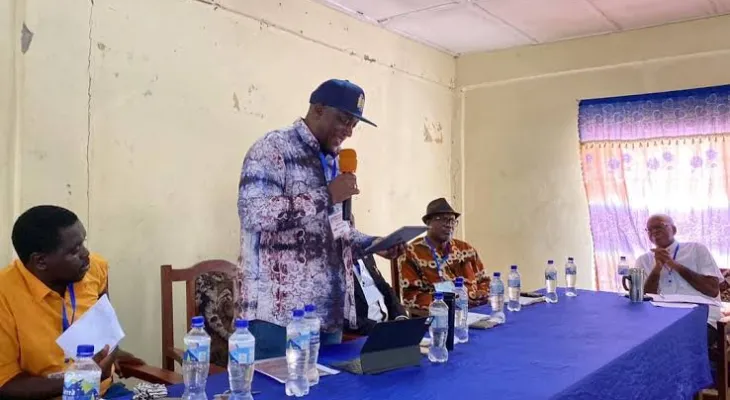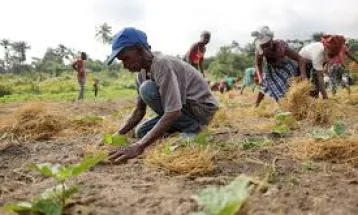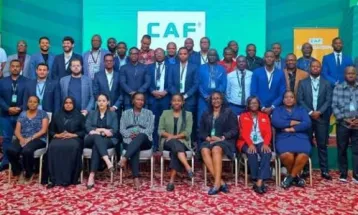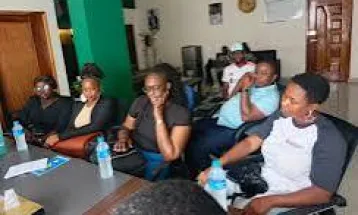
University of Makeni and Social Business Development Host First Poultry Day in Sierra Leone
The University of Makeni (UniMak) has joined forces with Social Business Development (SDB) to host Sierra Leone’s first Poultry Day at the university's Makeni campus. This landmark event brought together key stakeholders from the poultry industry to discuss strategies aimed at achieving self-sufficiency in egg production by 2029.
The primary goal of Poultry Day was to raise awareness about the ambitious target of eliminating egg imports within the next five years. To achieve this, participants delved into various strategies, including the implementation of improved poultry management practices and effective vaccination programs to enhance bird health and productivity.
SDB, known for its dedication to promoting sustainable development through agriculture and food supply chains, outlined its plans for expanding feed production—an essential component for the growth of the poultry industry.
During the event, Hon. Dr. Kandeh Yumkella, an agricultural economist and chairman of the Presidential Initiative on Climate Change, Renewable Energy, and Food Security (PI-CREF), delivered a keynote speech emphasizing the necessity of collaborative efforts. “Success in this endeavor requires strong partnerships between the public and private sectors, academic institutions, and other stakeholders,” Dr. Yumkella stated. He highlighted the potential for UniMak and Njala University to become central hubs for the Feed Salone Programme, driving progress in the northern and southern regions of the country, respectively.
Dr. Yumkella expressed confidence that with the right partnerships and commitment, Sierra Leone could achieve self-sufficiency in egg production within the next two to three years. He also underscored the need for building climate-resilient systems to safeguard the sector against the adverse effects of climate change.
SDB's CEO, Mr. Francesco Zanchi, called on the government to enhance quality control measures on imported eggs to protect consumers from diseases. He also advocated for a tax system that incentivizes investment in the poultry sector. Zanchi revealed that SDB’s affiliate, Lion Poultry, currently operates a feed mill producing one ton of feed per hour, with plans to increase this capacity to six tons per hour in the near future.
Dr. Abdulai Palmo Jalloh, Chief Agriculturist at the Ministry of Agriculture, announced the launch of a $10 million, zero-interest agricultural grant program for farmers. He encouraged poultry farmers to visit the Ministry’s website for more details on how to benefit from this program. Dr. Jalloh reaffirmed the Ministry’s commitment to supporting increased poultry production through the Feed Salone Programme, which aims to boost local food production and reduce reliance on imports.
The event also provided a platform for students and industry professionals to engage in discussions and share insights on best practices and innovations in poultry farming. This exchange of knowledge is expected to contribute significantly to the development of a robust and self-sufficient poultry industry in Sierra Leone.
By bringing together key players and fostering a collaborative environment, the inaugural Poultry Day at UniMak marks a significant step towards achieving self-sufficiency in egg production and promoting sustainable agricultural practices in Sierra Leone.




















